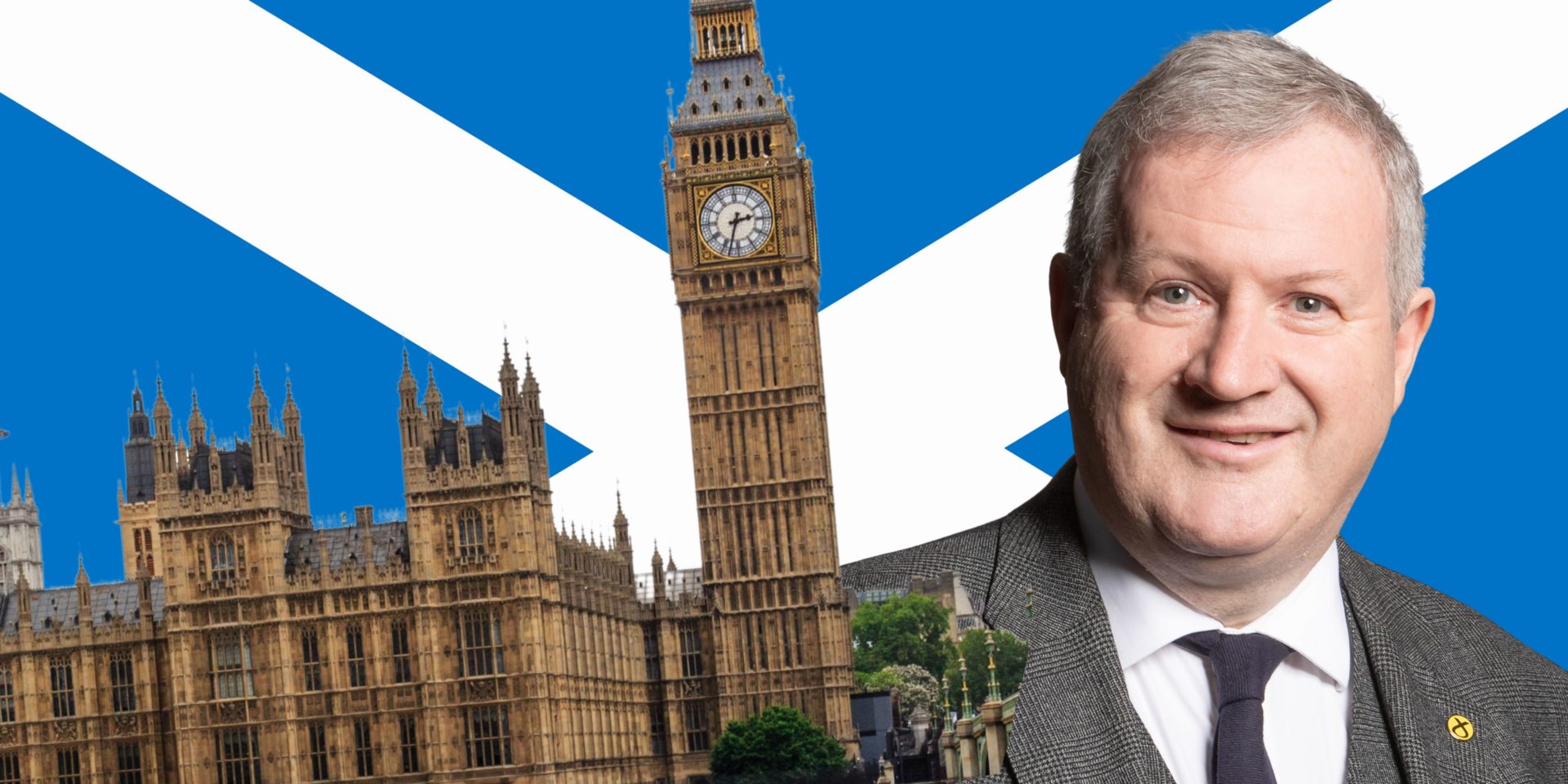The SNP’s Westminster leader Ian Blackford made a controversial claim about pensions during media interviews about an independent Scotland.
Speaking to ITV Border, and also on a Scottish independence podcast, the Ross, Skye and Lochaber MP, suggested that should Scotland become independent, existing state pensions would continue to be paid by the UK Government.
To back up this point, he claimed that the UK government’s chief secretary to the treasury confirmed this in 2014.
The chief secretary to the treasury made it clear at that point that the UK retained an obligation to pay pensions to those that had paid national insurance.
Ian Blackford MP
Ferret Fact Service looked at this claim and found it False.

Evidence
The question of pensions in an independent Scotland has been part of the constitutional debate for many years. The idea that Scots pensions would be better protected in the UK was promoted by the Better Together campaign during the lead up to the referendum, while those on the independence side argued that pensions would be secure if Scotland was to vote Yes.
In recent interviews with ITV Border and the Scotland’s Choice podcast, Ian Blackford suggested that the UK Government “retained an obligation” to pay state pensions even after Scottish independence.
This appears to be a different policy position to that outlined in the Scottish Government’s white paper on independence in 2013, which stated that “responsibility for the payment of pension will transfer to the Scottish Government”.
Blackford claimed this had been confirmed by “the chief secretary to the treasury” at the time of the referendum. From 2010 to 2015 the position was held by Scottish Liberal Democrat MP Danny Alexander as part of the Conservative-Lib dem coalition government.
Ferret Fact Service could find no mention of Alexander confirming the UK retained such a responsibility.
This Fact Check was suggested to us by Ferret reader, Aidan. Do you have anything you’d like the Ferret Fact Service to check? Submit your suggestions here.
The then-pensions minister Steve Webb said in a Scottish Affairs committee session in 2014: “You don’t have to be a UK citizen to get a UK pension so we will obviously – for the people who have put National Insurance into our system – we will pay them a pension wherever they lived.”
“So separation wouldn’t affect that, but what happened post-separation would be a matter for the Scottish Government.”
This mirrors the situation currently for those who worked in the UK but now live abroad, who are still entitled to a state pension if they have contributed the requisite National Insurance contributions.
He continued that the “split of funding” for those who have built up an entitlement through National Insurance payments was a matter for negotiation.
However, he later clarified this position in written evidence to the committee, saying: “I would think the Scottish people would expect their government to take on full responsibility for paying pensions to people in Scotland including where liabilities had arisen before independence.
“Similarly people in the rest of the UK would not be expecting to guarantee or underwrite the pensions of those living in what would then have become a separate country.”
How do state pensions work now?
Currently everyone in the UK who pays National Insurance is entitled to a state pension upon retirement. The amount you are entitled to depends on your level of contributions.
While people build up an entitlement through these contributions, the money they pay into National Insurance is not a ‘pot’ that is then drawn from when you retire.
The state pension is paid through current taxation and borrowing, and the government can change the amount and qualifying factors for pensions.
What would happen after independence?
This is not clear, and would be a matter for negotiation between the UK and Scottish governments. It is not currently agreed between the two governments where the responsibility would lie for those who have paid National Insurance contributions while still in the UK.
According to analysis by the Fraser of Allander Institute, the UK government is likely to argue that independence is an unprecedented change that cannot be compared to “the treatment of individuals under current state pension policy”. This is largely down to the fact that a share of the UK’s tax base would be transferred to Scotland.
Ferret Fact Service verdict: False
Ian Blackford is not correct to say that the chief secretary to the treasury confirmed prior to the independence referendum that those who paid national insurance in the UK would be the responsibility of the UK Government after independence. A similar statement was made by the then pensions minister Steve Webb, but he did say that the “split of funding” for those who have made National Insurance payments was a matter for negotiation between the UK and Scottish Governments should independence take place.

Ferret Fact Service (FFS) is a non-partisan fact checker, and signatory to the International Fact-Checking Network fact-checkers’ code of principles.
All the sources used in our checks are publicly available and the FFS fact-checking methodology can be viewed here.
Want to suggest a fact check?
Email us at factcheck@theferret.scot or join our Facebook group.
Photo Credit: Creative Commons














